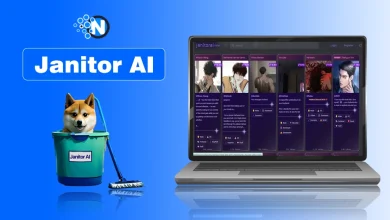Role of Automation in Healthcare Support Careers Today

Automation is reshaping healthcare. It is now improving workflows and easing support staff burdens. From streamlining tasks to enhancing accuracy, technology boosts efficiency across the board.
The development and integration of modern technology has made sure that several critical tasks can be automated.
If you are still unaware of how automation can bring comfort, keep reading.
In this blog post, I will explain the role of automation in healthcare support careers and how it improves overall care delivery.
Let’s start!
What is Automation in Healthcare Support
Automation in healthcare support is the use of advanced tools and technologies to streamline and enhance both clinical and administrative processes. It helps professionals reduce manual effort, improve accuracy, and free up time to focus on patient care.
Role of Automation in Healthcare Support Careers Today
If you are running a healthcare setting, it would be beneficial for you to understand these roles so that you can adapt this advanced technology and start utilizing it to reap its advantages.

1. Automation Support Healthcare Staff
Administrative tasks can overwhelm support professionals in healthcare. However, automation tools like Robotic Process Automation (RPA) simplify things like:
- Scheduling
- Billing
- Patient intake processes
These systems handle repetitive actions with accuracy and save time for staff.
Healthcare assistants benefit by shifting their focus from tedious paperwork to more impactful duties. And automated workflows ensure fewer errors in data entry and quicker processing times for critical information.
It will ultimately result in smoother operations for teams, reduced stress on employees managing office work, and better overall service delivery within clinics or hospitals.
2. Chatbots for Patient Communication in Support Roles
Chatbots play a growing role in healthcare support by handling common patient inquiries. These virtual assistants can do things like:
- Answer appointment questions
- Provide medication reminders
- Guide patients through basic processes
For healthcare staff, it reduces the time spent on repetitive communication tasks. Front desk employees and support teams can instead focus on complex or urgent matters that require more personal attention.
Ultimately, chatbots improve accessibility for patients while easing workloads for professionals. Further, this technology ensures quicker responses to patient needs without compromising the quality of care provided by human workers.
3. AI for Managing Medical Records
AI tools transform how medical records are organized and maintained. Intelligent systems can scan, sort, and update records swiftly while ensuring accuracy. This reduces the chance of misfiled or incomplete documentation.
Support professionals like medical assistants benefit significantly from this automation. Tasks such as tracking down misplaced files become rare occurrences, which ultimately saves valuable time.
AI-powered record management also enhances patient care by ensuring updated information is readily available to all team members. Staff enjoy a smoother workflow with fewer administrative hurdles to navigate daily.
4. Robotics into Pharmacy Operations for Staff Relief
Automation in pharmacy settings takes the pressure off healthcare support staff. Robotic systems handle tasks like
- Sorting
- Dispensing
- Labeling medications
For a pharmacy technician (which is a rewarding career that takes as little as nine months to become certified), these tools mean less time on repetitive duties and more focus on patient care or administrative support.
Automation can also minimize workplace fatigue by streamlining inventory management processes.
Pharmacy robots enhance safety and efficiency by complementing, rather than replacing, existing roles. They allow technicians to focus on higher-value responsibilities that directly benefit patients.
5. Predictive Analytics to Aid Healthcare Assistants
Predictive analytics helps support staff by anticipating patient needs and resource requirements. These systems analyze data trends to predict appointment demand, anticipate cancellations, and identify potential inventory shortages.
For healthcare assistants, this means fewer last-minute surprises. They can prepare ahead of time for busier schedules or specific supply needs, thus reducing stress during peak periods.
This proactive approach ensures smoother operations in clinics and hospitals. Support teams experience a more balanced workload while contributing to improved patient satisfaction through better-prepared care environments.
6. Automation Tools in Telehealth Services for Support Teams
Automation processes, including appointment scheduling, patient follow-ups, and billing, enhance the effectiveness of Telehealth. Automated reminders are tools designed to ensure that patients attend sessions or complete the required forms.
Support staff will be better off with a reduction in the routine administrative work. They can focus on addressing technical issues or providing personalized support during virtual meetings.
Seamless coordination, facilitated by automated systems, also leads to a better patient experience. This removes the burden on healthcare professionals who have to deal with the back-end of services and make sure that the provision of telehealth services is smooth and efficient for all parties.
7. Emergency Situations Management
Automation is also important when responding to emergency conditions in healthcare since it allows quick action and better coordination. Automated alert systems have a feature that immediately alerts the emergency teams, and this also reduces the reaction time. Patient-centered tools based on AI can process patient information and rank cases to improve the triage process.
The vital signs in ambulances are monitored automatically and in real-time and transmitted back to the hospital. Finally, they become ready once the arrival takes place. Besides, the introduction of robotic systems into emergency rooms will be able to aid in rapid diagnosis and provision of medication.
Moreover, automation increases the speed, accuracy, and efficiency of care to emergency patients as it decreases human delays and errors. Finally, automation enhances patient care in life-threatening circumstances as well.
Final Thoughts
These are the details about the role of automation in the healthcare support career. I have explained the sectors in which the integration of advanced technology can take control and bring an immense level of comfort to administrators as well as workers.
Now, it is up to you to have your hands on automation techniques like robotics, AI, predictive analytics, and chatbots. In this way, you can speed up your healthcare organization’s tasks and pocket the desired benefits you are looking for to compete in this competitive landscape.
People Also Ask
1. How does automation improve emergency response times in hospitals?
Automation speeds up communication between departments and emergency teams, which enable faster patient triage, diagnosis, and treatment planning.
2. Can automated systems assist in ambulance care?
Yes, ambulances equipped with automated monitoring and data-sharing tools can transmit real-time patient vitals to hospitals, and allow for better preparedness upon arrival.
3. Do AI tools help in prioritizing emergency patients?
Absolutely. AI-driven triage systems analyze symptoms and vital signs to prioritize critical cases. Hence, they ensure timely care for the most urgent patients.
4. Are robots used in emergency rooms?
In some hospitals, robotic systems assist with diagnostics, delivering medications, and even guiding patients to reduce workload on human staff during peak times.
5. Is automation reliable in life-threatening emergencies?
While human oversight is essential, automation enhances reliability by reducing human error, speeding up processes, and ensuring critical steps aren’t missed during emergencies.




